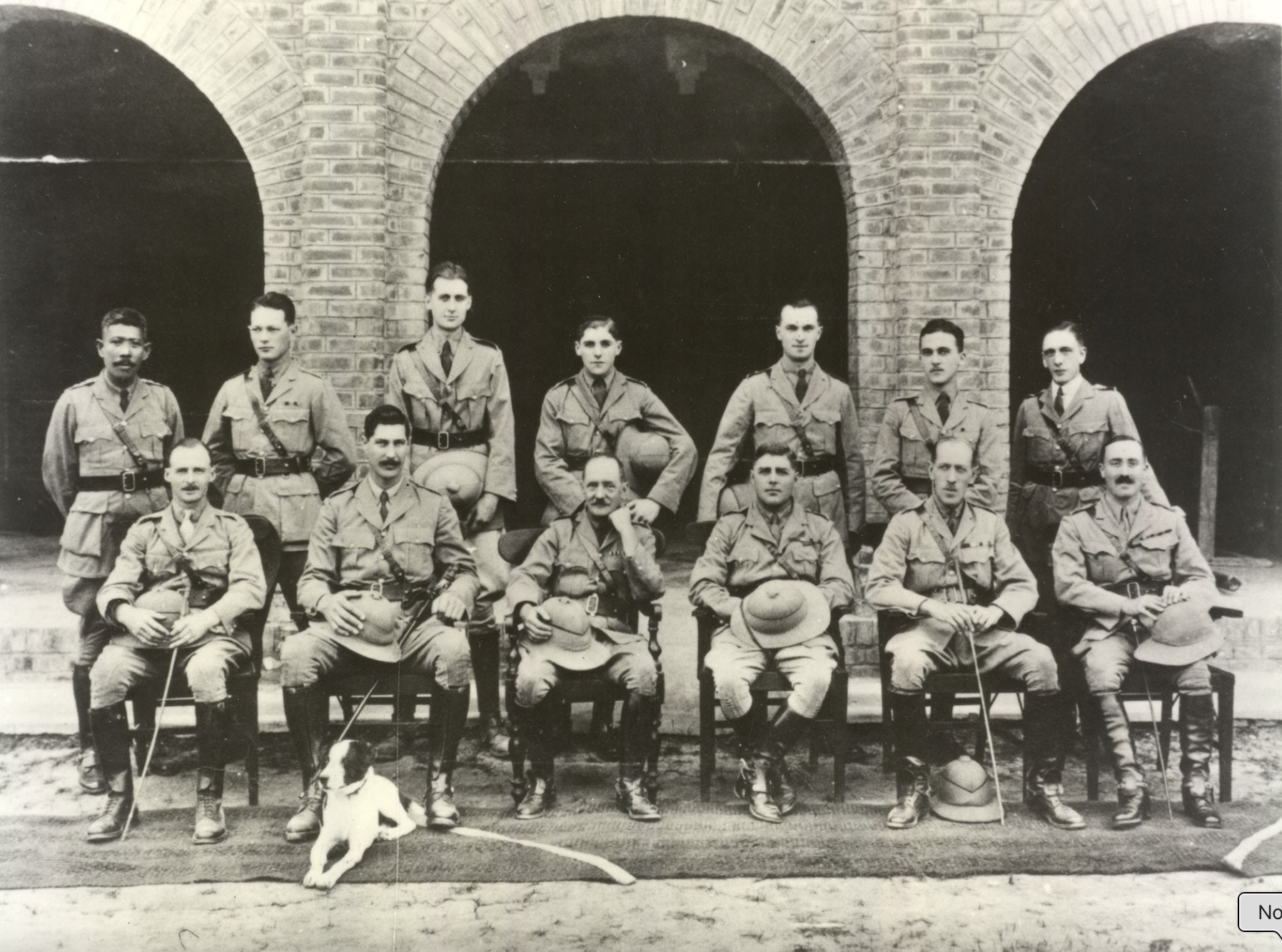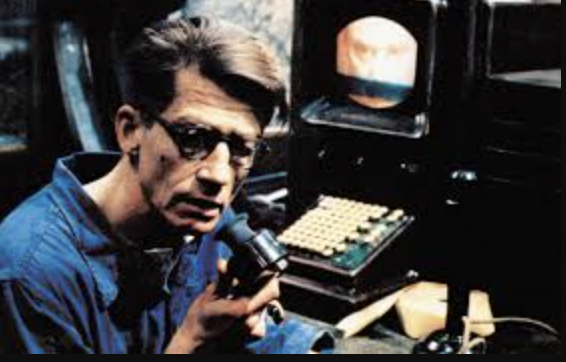'Orwell: 2+2=5' Review: Raoul Peck's Latest Has A Strong and Eerily Relevant Thesis [TIFF 25]
renowned documentarian Raoul Peck navigates through generations of fascism with the words of george orwell
It is not a baseless claim to say that we are living in an increasingly authoritarian time, with various crises and widespread political corruption around the globe. Documentary veteran Raoul Peck (I Am Not Your Negro, The Young Karl Marx) is inclined to agree, with fascism as the central topic in his documentary Orwell: 2+2=5, in which Peck uses the narrated musings of author George Orwell (read by actor Damian Lewis), and thematically multimedia footage to accentuate both Orwell’s words and the documentary’s overall thesis on prevalent authoritarianism in the modern world.
Peck’s decision to make a project tackling historical authoritarian movements already deems it relevant to the modern day, and the decision to focalize the documentary around Orwell, even more so. Orwell’s work has become a mainstay in a Western cultural lexicon, with terms such as ‘Big Brother’ and namedrops of ‘1984’ often being used flippantly in reactionary discourse. This is, as Peck agrees, more prevalent than ever, with Orwell’s work being misconstrued in baseless claims about things like the COVID-19 and its subsequent lockdown protocols, vaccines, and 5G Cellular Networks.
For these reasons, in addition to the scathing indictments of real world leaders such as Donald Trump, Vladimir Putin, and Benjamin Nethanyahu, Peck’s documentary is able to establish a relevant ‘point,’ as it were. The focus on historical incidents, especially lesser known atrocities in Asia and Africa that were briefly spotlighted, work especially well as links to modern instances of authoritarianism. Namely, Peck incorporates archival footage from the British rule in Berma, coupling this footage with Orwell’s reflections to his time as a police officer in this rule. Choosing to get into the personal life of Orwell is intriguing, and especially so in this politically charged context. There are also brief glimpses into Orwell’s struggle with tuberculosis and aspirations as a father, which prove interesting once again, but are less relevant to the rest of the thesis. However, these instances feel like a engaging ‘detour,’ apropos to some of the other sub-sections of the documentary.
Between the prevalent use of footage from pop culture (ranging from Orwell adaptations to 70’s conspiracy thrillers, to name a few) and the use of Generative AI-produced media to segue between thematic points, it feels as if the documentary loses a grasp on its firm thesis. This is especially disheartening, because of how compelling other parts of the piece can be. The incorporation of AI imagery is especially confounding. Peck does acknowledge the potential dangers that AI generated imagery and video can cause in terms of misinformation and how it can be manipulated to produce sexual imagery of people without any iota of consent. However, these portions of the documentary pale in screentime compared to the AI-images of Donald Trump and other world leaders. This, coupled with the fact that Peck acknowledges the pitfalls of AI usage, makes the decision all the more confounding, and the trend reoccurs far too often for it to be simply be written off as a one-time, ironic thing, even if the majority of the usage could be rendered as ironic.
In short, Peck’s documentary comes off as a ‘crash-course’ on fascism. This is not meant as an insult, and the film ultimately does prove relevant in modern times, and stands on its own with some spectacularly edited sequences that hammer the messages home. However, at risk of sounding dismissive of rising authoritarianism, one can’t help but wonder what kind of audience member isn’t at least somewhat aware of the elements Peck has incorporated into the piece, namely the commentary on current world leaders. This absolutely isn’t to say that this should not have been featured, or that the leaders in question should not be held to scrutiny, as everything is relevant. To reiterate the ‘crash course’ idea from earlier, it feels as if this documentary could fare quite well with younger viewers, especially in history classrooms for instance. Every featured idea is essential learning, and despite the hiccups in presentation, there is enough of the connections between past and present that work to reveal how fascist movements work, and how to be practically vigilant against them in everyday life. While it is not Peck’s most powerful work, it would be hard not to call it recommended viewing, especially from an educational perspective.



